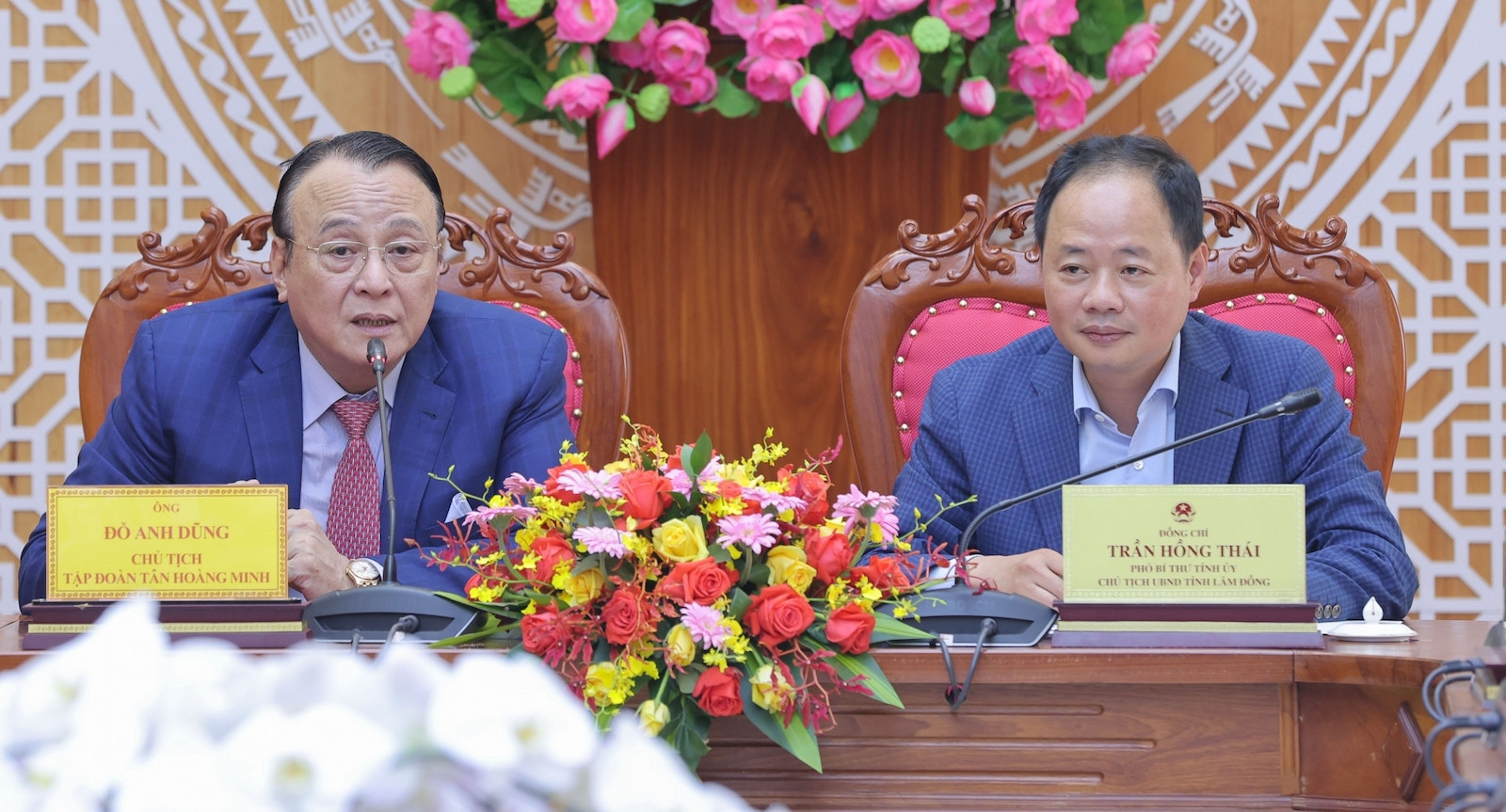
The image of Do Anh Dung, Chair of Tan Hoang Minh Group, meeting Lam Dong province leaders to discuss a project in Da Lat, just days after his amnesty, has spread rapidly and inspired Vietnam’s business community.
Convicted of “fraudulent appropriation of property,” Dung served his prison sentence and paid VND10 trillion in compensation for damages, showing the spirit of bearing responsibility and readiness to compensate for losses caused.
His amnesty on the occasion of April 30, 2025 can be seen as the State’s recognition of that spirit. Dung has not avoided the public, but has chosen to appear, restarting his business operations.
Entrepreneurial missteps stem from many different reasons, including market complexities, unclear regulations, personal errors, and wrong decisions.
The critical question is whether, after serving their sentences, entrepreneurs can redeem themselves, re-integrate and contribute again to society.
In the past, many people, after being caught by the law, lost almost everything. Their businesses became "paralyzed" while their assets became frozen, their operations stopped, and businesspeople lost motivation or were afraid to think about the possibility of recovery.
But Resolution 68 has brought a new way of thinking: strictly handling violations, but not eliminating the opportunity to restart from the beginning.
The resolution sends a strong commitment from the Party to turn the private economic sector into the most critical driver of the national economy.
The policy of prioritizing civil, economic, and administrative measures before considering criminal handling, and encouraging businesses and entrepreneurs to proactively remedy the consequences can be seen as the State's way of placing trust in the ability to correct mistakes, in the spirit of openness and responsibility of entrepreneurs.
Door left open
Resolution 68 has laid a new approach for economic offenses. While the policies in the past closed nearly all doors for reintegration, the new framework prioritizes remediation over criminalization, favoring civil, economic, or administrative measures when possible. If criminal penalties are unavoidable, remediation efforts will significantly influence sentencing and subsequent actions.
This means that the door is not closed to entrepreneurs who can look back on their mistakes and sincerely want to correct them. Dung’s story is not just personal, but a clear message for the entire private economic sector, an important contributor to economic growth, job creation and social development.
In a business environment that is constantly changing, such an open legal mindset will help reduce the fear of extreme legal risks, encourage entrepreneurs to recreate value, so that assets and social resources are not wasted after economic cases. The most important is to help them maintain the entrepreneurial spirit, encourage responsible correction of mistakes, instead of accepting to "give up the game".
For many entrepreneurs, Dung’s story is an inspiring reminder: you can make mistakes, and even pay a very high price for them. But if you accept responsibility, are willing to fix the consequences, and want to contribute back, the society, laws, and humane policies still can open the door for you to rebuild your life.
Prime Minister Pham Minh Chinh has repeatedly emphasized maximizing support for businesses and entrepreneurs to address economic violations. At a May 2025 meeting on drafting a National Assembly resolution on specific policies for private sector development, he urged swift institutionalization of Resolution 68 to bring policies to life.
Chinh requested focus on immediate, impactful measures requiring minimal resources, such as simplifying administrative procedures for business establishment, dispute resolution, and bankruptcy. Policies will promote business growth, job creation, and livelihoods, encouraging business households to formalize, small firms to become large firms, and large firms to expand further.
The resolution needs to ensure property rights, business freedom, and fair competition while advancing public-private partnerships in leadership, management, and investment models. The Prime Minister supports decentralizing authority to ministries, localities, and investors for project assignments, with transparent mechanisms and robust oversight.
Chinh stressed distinguishing criminal from civil/administrative liabilities and between individuals and entities. Economic violations should prioritize civil, economic, or administrative remedies, allowing businesses to proactively address damages. Criminal proceedings should be a last resort, with remediation a key factor in determining further actions.
Nguyen Le